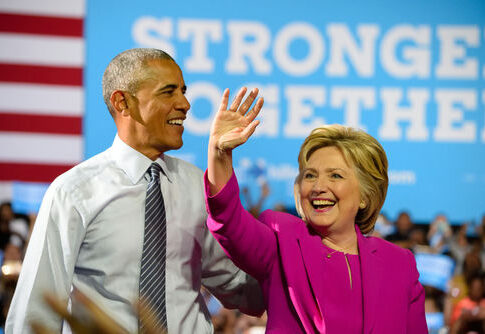Tulsi Gabbard’s explosive claims about a ‘years-long coup’ against Trump have reignited the Russiagate controversy, leaving many questioning Mueller and Durham’s investigations.
Gabbard’s Revelations and the Alleged Coup
Tulsi Gabbard, now serving as the Director of National Intelligence, has made headlines by releasing over 100 pages of memos and documents alleging a “treasonous conspiracy” to amplify Russian collusion claims against Donald Trump. According to Gabbard, these documents indicate that the Obama administration knew Russia did not impact the 2016 vote totals through cyberattacks. Gabbard has publicly criticized both Mueller and Durham for failing to uncover or address this evidence, suggesting a possible cover-up. However, she stops short of directly accusing them of intentional deceit.
Gabbard’s team claims that the documents, which have been declassified, expose a concerted effort to damage Trump’s presidency through exaggerated claims of Russian interference. While the Mueller report, completed in 2019, did not find conclusive evidence of a criminal conspiracy between the Trump campaign and Russia, Gabbard argues the narrative was amplified beyond what was justified, calling it a “years-long coup.”
Critics Push Back
Despite Gabbard’s assertions, critics, including Democratic Representative Jim Himes, have accused her of misleading the public. They argue that by focusing solely on the lack of cyberattack impact on vote totals, Gabbard is ignoring the broader context of Russian interference, which included extensive propaganda and social media operations aimed at influencing public opinion. Himes and others assert that Gabbard’s focus is dangerously narrow and risks distorting the true extent of Russian activities during the 2016 election.
HOLY SH*T 🚨 THESE DOCUMENTS THAT TULSI GABBARD DECLASSIFIED PROVE EVERYTHING
OBAMA SHOULD BE IN PRISON
HOLY SH*T pic.twitter.com/xkaQkPlMQI
— MAGA Voice (@MAGAVoice) July 18, 2025
Critics also express concern that Gabbard’s actions may further erode public trust in U.S. intelligence agencies, which have already been under intense scrutiny. The allegations of politicization and bias threaten to deepen political divisions, making it even more challenging to restore confidence and morale within the intelligence community.
The Path Forward
With Gabbard’s disclosures now public, the Trump administration is pushing for accountability, with Attorney General Pam Bondi and FBI Director Kash Patel tasked with determining potential prosecutions. Gabbard has promised further disclosures, hinting that whistleblowers are coming forward with additional information that could further substantiate her claims. This sets the stage for potential legal and investigative actions against former Obama-era officials, which could have significant political ramifications.
Would be a shame if this declassified email from Susan Rice noting Obama and Comey agreeing to hide the Russia Hoax from Trump’s NSA, General Flynn, went Viral
YOU KNOW EXACTLY WHAT TO DO 👇 pic.twitter.com/0gx5EFLtSe
— MAGA Voice (@MAGAVoice) July 19, 2025
The ongoing debate has also reignited partisan tensions, with Republicans generally supportive of Gabbard’s findings and Democrats critical of her conclusions. This renewed focus on Russiagate is likely to remain a contentious issue, influencing both public opinion and policy decisions as the Trump administration seeks to challenge previous narratives and enact changes within the intelligence community.
The Wider Implications
The implications of Gabbard’s revelations extend beyond immediate political and legal concerns. This episode could set new precedents for transparency and whistleblower protections within the intelligence community, potentially reshaping oversight and accountability standards. However, the risk of further politicization and diminished public trust remains a pressing concern.
Moreover, Gabbard’s dovish foreign policy stance and skepticism toward intelligence assessments may influence the United States’ posture toward adversaries like Russia and Iran, affecting international relations and security strategies. As the story unfolds, the broader impact on U.S. intelligence, electoral integrity, and foreign policy will depend on how these revelations are addressed and acted upon by both government officials and the public.
Sources:
Economic Times on Gabbard’s Appointment
Rick Scott’s Statement on Gabbard

